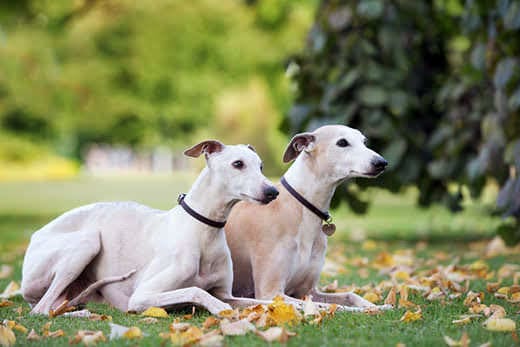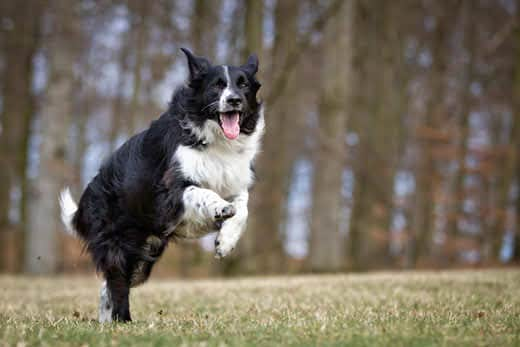
-
Find the right food for your petTake this quiz to see which food may be the best for your furry friend.Find the right food for your petTake this quiz to see which food may be the best for your furry friend.Featured products
 Adult Chicken & Barley Recipe Dog Food
Adult Chicken & Barley Recipe Dog FoodSupports lean muscle and beautiful coat for adult dogs
Shop Now Hill's Science Diet Adult Chicken & Beef Entrée Dog Food
Hill's Science Diet Adult Chicken & Beef Entrée Dog FoodChicken & Beef Entrée in a delicious loaf with complete & balanced nutrition to help keep adult dogs active and healthy
Shop Now Adult Large Breed Chicken & Barley Recipe Dog Food
Adult Large Breed Chicken & Barley Recipe Dog FoodSupports healthy joints, lean muscle, and beautiful coat for large breed dogs
Shop NowFeatured products Senior Vitality Adult 7+ Tuna & Vegetables Stew
Senior Vitality Adult 7+ Tuna & Vegetables StewImproves Everyday Ability to Get Up & Go
Shop Now Adult 7+ Indoor Chicken Recipe Cat Food
Adult 7+ Indoor Chicken Recipe Cat FoodSupports energy level and beautiful fur in mature indoor cats
Shop Now Adult Turkey & Liver Entrée Cat Food
Adult Turkey & Liver Entrée Cat FoodPrecisely balanced nutrition with the delicious taste of minced turkey & liver to help fuel the energy needs of cats during the prime of their life
Shop Now -
Dog
- Dog Tips & Articles
-
Health Category
- Weight
- Food & Environmental Sensitivities
- Urinary
- Digestive
- Joint
- Kidney
-
Life Stage
- Puppy Nutrition
- Adult Nutrition
- Senior Nutrition
Cat- Cat Tips & Articles
-
Health Category
- Weight
- Skin & Food Sensitivities
- Urinary
- Digestive
- Kidney
-
Life Stage
- Kitten Nutrition
- Adult Nutrition
Featured articles How to Properly Mix Wet & Dry Pet Foods
How to Properly Mix Wet & Dry Pet FoodsAn Orange cat eating from a bowl filled with mixed food
Read More What Is Littermate Syndrome? Pet Adoption Guide
What Is Littermate Syndrome? Pet Adoption GuideLearn more about littermate syndrome in dogs and cats and how to successfully navigate adoption and early socialization processes.
Read More The Science Behind Our Love for Pets
The Science Behind Our Love for PetsLearn the scientific reasons why we have such strong connections with our pets, and what science says about the love between humans and our furry friends.
Read More -


There your dog goes again, chasing after another critter in your backyard. While their favorite little animals might be squirrels, your dog doesn't discriminate. If they see a bunny, raccoon, possum or anything else — they chase. Why does your dog chase squirrels and other furry critters?
So far, the behavior hasn't caused much of a problem, but you're worried that the chasing may lead to your dog getting loose and then lost — or worse, getting bitten by the other animal. If you've been pondering why your dog like to chase squirrels, this guide will explain why the behavior occurs and whether or not you can make it stop.
Why Do Dogs Chase Squirrels?
There are many reasons why your dog may chase little creatures, like raccoons, porcupines, skunks and chipmunks, but the most common are curiosity, playfulness and predatory drive.
Curiosity or Playfulness

A young puppy, for example, may be intrigued by fast moving critters and chase after them to find out what they're doing, or to join in and "play" with them. This natural curiosity is wonderful, but it's important to keep a close eye on your pet while outdoors. You don't want them to wander away while chasing a prey, and you wouldn't want them to be bitten by a small animal either!
Predatory Drive
If not for curiosity, why do dogs chase squirrels? While some dogs may just want to play with a squirrel, there are others who see a critter as their prey, and their predatory drive kicks in. Dogs who are predatory chasers are attempting to catch their prey — and eat or extinguish it. You'll want to make sure a dog with a predatory drive is also watched afterward so that they don't run far away (and so you don't get "greeted" regularly with a mouthful of squirrel).
On the other hand, there's no need for concern if your dog doesn't seem interested in chasing squirrels or other small animals. They simply may not have the impulse. However, if your dog was once extremely driven to chase prey, yet suddenly shows no interest, it may be a smart idea to check in with their veterinarian. Any sudden changes in behavior may be indicative that something is wrong.
Which Breeds Are the Biggest Chasers?
According to the American Kennel Club (AKC), sighthounds of all sizes, such as Afghan hounds and Whippets, were bred to chase. Other breeds, specifically herding dogs such as border collies and German shepherds, are also inherently prone to chasing, due to their drive to corral animals.

But that doesn't mean a different breed can't also be driven to chase. Any dog who sees a small animal darting around their territory may show interest. That interest can potentially develop into a "game" or a prey-driven chase!


Tasty Tips
Can Dogs Be Trained Not to Chase?
The AKC also shares that "The desire to chase is inherent to many dogs and is a highly self-rewarding behavior, but because some dogs enjoy it so much, it can be extra challenging to train them not to do it." However, that doesn't mean all hope is lost. You can train your pet not to chase, especially when they're a puppy but also later in life with a bit more difficulty.
Leash training and motivating your pet with toys and treats during outdoor training opportunities is key to helping them learn to listen to you and ignore their urge to chase. Dog impulse training can be difficult because you're training them to ignore a behavior that is coded into their DNA, but by refocusing that innate desire to a more productive activity your dog can fuel their desire to chase in a safer way.
How to Keep Chasing Dogs Safe
While you're learning to train your dog to avoid chasing small animals, here are a few tips to keep them safe:
- Always keep them on a leash when walking them in public: If they tend to have a mind of their own, keep a short leash to avoid them being able to getting a running start and potentially harming themselves or pulling you down.
- Use a harness to attach your leash to: Harnesses are great because they don't put the pressure on your dog's neck and throat if they pull. It wraps around more of their body to also give you more control in redirecting their attention.
- Block all exits routes: While it may be hard to keep squirrels and other small critters out of your backyard, make sure that if you let your dog out to run around on their own that there aren't any potential breaks in the fence or places they could easily jump over.
- Keep a watchful eye: While most small critters aren't known for fighting back, when they feel threatened, they react. Pay close attention to your dog's behaviors after letting them out. Any sign of behavior changes that could indicate that they were attacked, is important to catch quickly. Any signs of bites, scratches or other indications that your dog was attacked are worth calling your veterinarian immediately and getting their consult.
As long as you keep your dog safe, by not allowing them to get loose during a chase and train them well, you can rest assured that chasing is a normal behavior for your dog.


Erin Ollila believes in the power of words and how a message can inform—and even transform—its intended audience. Her writing can be found all over the internet and in print, and includes interviews, ghostwriting, blog posts, and creative nonfiction. Erin is a geek for SEO and all things social media. She graduated from Fairfield University with an M.F.A. in Creative Writing. Reach out to her on Twitter @ReinventingErin or learn more about her at http://erinollila.com.
Related products

Supports healthy joints, lean muscle, and beautiful coat for large breed dogs

Supports lean muscle and beautiful coat for adult dogs

Chicken & Beef Entrée in a delicious loaf with complete & balanced nutrition to help keep adult dogs active and healthy

Chicken & Barley Entrée in a delicious loaf with great taste and precisely balanced nutrition to support 5 essential building blocks for lifelong health
Related articles

Learn how to help keep your dog's immune system in tip-top shape, including nutritional immune system support for dogs and other strategies.

Wondering where can I buy a dog? Consider adoption and explore the pros and cons of adopting a dog from a breeder versus an animal shelter.

Your dog's coat and skin are a big part of your dog's overall health. Ensure you keep your dog's coat healthy, by following these simple tips.

Discover how the field of dog science is giving us more and more insights into the inner workings of our furry best friends.

Put your dog on a diet without them knowing
Our low calorie formula helps you control your dog's weight. It's packed with high-quality protein for building lean muscles, and made with purposeful ingredients for a flavorful, nutritious meal. Clinically proven antioxidants, Vitamin C+E, help promote a healthy immune system.
Put your dog on a diet without them knowing
Our low calorie formula helps you control your dog's weight. It's packed with high-quality protein for building lean muscles, and made with purposeful ingredients for a flavorful, nutritious meal. Clinically proven antioxidants, Vitamin C+E, help promote a healthy immune system.

